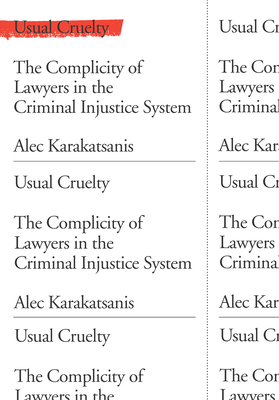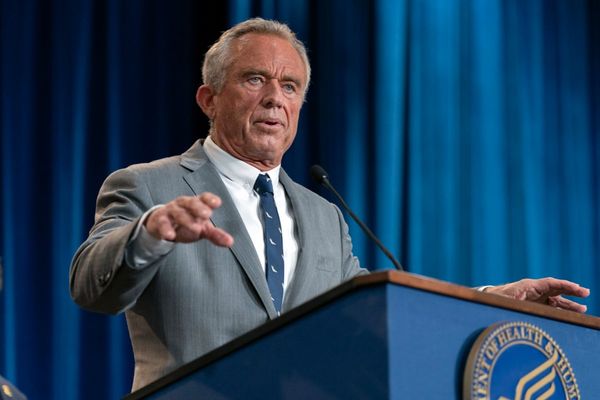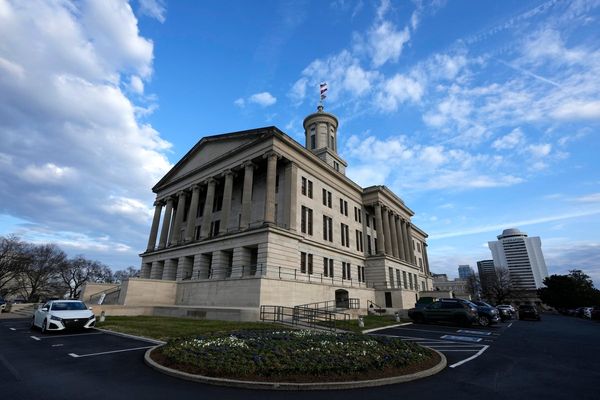These days, political candidates of all stripes say they support “criminal justice reform,” but what does that really mean?
Alec Karakatsanis, a public defender turned civil rights lawyer, argues that the majority of officials calling for change have done little more than curb the most grotesque abuses of what he calls the “punishment bureaucracy.” In a new book of essays, Usual Cruelty, Karakatsanis critiques the blindness of his own profession, arguing that lawyers inside the criminal justice system—now desensitized to its everyday brutality—have largely helped preserve an architecture of injustice and cruelty.
Karakatsanis’ organization, Civil Rights Corps, has filed lawsuits challenging unjust treatment of defendants across the country, including in Harris County’s landmark bail case. He’s skeptical of the notion that progressive or reform-minded prosecutors can generate systemic change. Still, Usual Cruelty provides a new framework for evaluating whether politicians are pushing tweaks or true transformation: Will they stop prosecuting drug possession, refuse to prosecute children like they’re adults, or commit to shrinking the size of their own office?
The Observer recently spoke with Karakatsanis about his book, the lawsuits his organization has filed in Texas, and how reformist prosecutors fit into the movement to end mass incarceration.

Texas Observer: You write that so many people inside the criminal justice system—prosecutors, defenders, judges, court staff—have become desensitized to the pain the system inflicts. How has that become a barrier to reform?
Alec Karakatsanis: I wrote this book because I think we’re at a dangerous time in what’s often called the criminal justice reform movement. There’s really exciting growing consciousness among many people in our society about the cruelty and irrationality of the punishment bureaucracy, but all of the same people that created that bureaucracy and profited off it are in charge of deciding what constitutes reform. If we’re not careful and we don’t build the right knowledge about what’s actually wrong with the system and empower people actually harmed by the system to fight against it, then those same punishment bureaucrats will reproduce all of the same mechanisms of oppression using different labels.
I wanted to tell a story about what’s really going on in the criminal system based on the evidence, but I also wanted to help give people tools to be able to tell the difference between changes and self-serving tweaks that the people who control this system are going to be offering increasingly. Everybody who’s working in the system has become so desensitized to the brutality inherent in putting humans in cages, so much so that we stopped requiring good reasons for it, or in many cases any reason at all.
You point to specific language and rhetoric officials use to justify this larger punishment bureaucracy. Why are terms like “rule of law” a red flag?
The concept of “the rule of law” is invoked as a term of propaganda. When you have a system that’s as profoundly unjust and unjustifiable as our current criminal justice system, it’s very important for the people who are promoting that system to mask what it is actually doing. So they can’t just say this system’s purpose and function is to control poor people and people of color, to cage large numbers of people for no good reason, right? They have to make it seem like there’s some higher purpose in order for the system to have some perceived legitimacy. So they use phrases like “the rule of law” to make the system seem natural and neutral.
In fact, what’s really going on is the people who have power in our society are making very important choices about what is a crime and what is not a crime. For example, for much of this country’s history, possession of a marijuana plant was not a crime. It was made a crime for very particular racial and political purposes. The same is true for cocaine. The same is true for various types of derivatives trading, which was considered illegal gambling up until the 1990s, when some very wealthy people paid a lot of money to politicians and were able to convert what was gambling into a cornerstone of financial investment—which of course led to the financial crisis in the early 2000s. And you can see that over and over again.
You tie your arguments about reform to the racist roots of prisons and policing. How important is that historical framing?
It’s absolutely essential. The history of the criminal punishment system cannot be understood without examining how it’s always been significantly about race and controlling particularly black populations, but also minority populations and indigenous populations, by rendering their conduct and their very existence criminal.
During Reconstruction, what ended up happening in many areas of the South—and then this kind of activity spread throughout the county—is that various populations were just criminalized for things like vagrancy or other types of behavior. There’s a great book called Slavery by Another Name, which is about how the police and court systems were turned into a system of convict leasing. Black people were rounded up, convicted of ridiculous charges like vagrancy, and then their labor was then leased out to private companies.
In every single jurisdiction that’s ever been studied, policing disproportionately punishes black people. They are stopped at higher rates, they are searched at higher rates, they’re arrested at higher rates, they’re then charged at higher rates and convicted at higher rates and they get longer sentences. In every single aspect of the process, there’s a disproportionate effect on black people. And there’s no way to understand that system without confronting that ugly fact about our society and our history.
You were clearly appalled by the trauma and injustice you witnessed working inside the system. What were some of those formative experiences?
There’s too many to count. To spend even one day observing the assembly-line court system in our country is to witness incredible pain and suffering that’s being inflicted for absolutely no good reason.
When I was a public defender in Alabama, I defended people accused of coming into the country illegally after being deported. For the most part they were here to be with their families and provide for their children, which is something all human beings have the fundamental right to do.
These hearings were really a spectacle to witness, because they involved extremely poor people coming from countries that the U.S. had laid waste to, all to be with their families. And the U.S. government had them chained and shackled and was trying to cage them and sentence them to time in a U.S. prison at U.S. taxpayer expense before deporting them again. What was so profound about it was when you took away the assembly-line character and started letting people talk and share their stories, share the artwork they made in their jail cell and talk about what it was like to be separated from their children, when you asked the judges to unshackle people so they could hug their child one last time—these hearings turned into a profound commentary on the senselessness of the American criminal system. And I don’t think anybody who witnessed those hearings, from judges to probation officers to public defenders, was ever the same again.
The same thing is true for virtually everybody who appears in the American criminal system. They all are a human being with an incredibly interesting and complex and at times very tragic personal story. And instead of trying to create a society where there’s less deprivation and poverty and more human flourishing, we instead have been trying to solve these problems like addiction and mental illness and human conflict through punishment, which I think is profoundly mistaken and wrongheaded.
Many officials and candidates who consider themselves reformers have worked inside this harmful system that you describe for a long time. What’s the problem with that?
We should be very wary of them. For all the people who built their careers on human caging, they never for a moment possessed a single shred of evidence that all the pain they were causing, all the families they were separating, all those years in caging was doing any good. And in fact, all of the available empirical evidence was to the contrary. There was never any evidence that caging people who were addicted to [drugs or alcohol] was the best way, and yet all of those people were participating in something that they knew was causing enormous pain. That’s a very, very troubling characteristic.
So for people running for office now and wanting to be a reformer, it’s absolutely vital that we interrogate when, exactly, and how they developed a drastically different view from what they spent the rest of their career doing. And we need to interrogate very specifically what exact policies they’re proposing that are going to dismantle these systems they’ve championed their whole career. Because a lot of what they’re proposing are actually just minor tweaks that look more like things that are going to help them get elected.
That’s what I wanted to do in the book, is to give people several very specific rules of thumb for how you tell whether what someone’s proposing would be transformative versus much more of the same. One of the things that you see punishment bureaucrats doing a lot, like Kim Ogg in Houston, is say, “I need more prosecutors—more, more, more.” Well, if you give her more prosecutors at an enormous public expense, what are they going to do? They’re going to prosecute more people. The way to a smaller punishment bureaucracy is not through more prosecutors, it’s through fewer prosecutors.
How do you think the Harris County bail lawsuit changed the way people view the system there? What were some big lessons learned from that case?
I don’t think anybody who’s seen the videos of what bail-setting was like in Harris County can conclude that we have a rigorous and just legal system. I mean, they’re shocking. Unfortunately, that’s what we’ve seen all over the country, but that’s rarely captured on video the way it was in Houston.
Just take misdemeanors alone in Houston: There were about 20,000 human beings every single year who were detained for the entire duration of their case, not because anyone found them to be a danger or flight risk or anything like that, but solely because they were so poor they couldn’t afford a couple hundred dollars to get out. And that had devastating consequences. In many cases, people would lose their jobs, their shelter, they wouldn’t know where their kids were, there would be enormous risks to their family, they would be deprived of medication they needed. Fifty-five people died in the Harris County jail in the five years before we sued just because they couldn’t pay money bail.
We made a very simple argument: No human being should be put in a cage because she can’t make a payment. And that argument has a lot of moral force. Everyone that I’ve talked to, conservatives and liberals around the country, really seems to get that argument. It was the lawyers who work in the system who had a hard time with it, who concocted all of these rationalizations and purported justifications that really make no sense.
That was one of the most profound things about the Harris County case to me: the disconnect between what we can all see with our own eyes, the pain and suffering that any normal human being that’s not a punishment bureaucrat working in the system could see really clearly. Some people are so desensitized to this that it’s just normal.
This interview was edited for length and clarity.
Read more from the Observer:
-
Something in the Air: In the Texas Panhandle, which produces a fifth of the U.S. beef supply, communities are being choked by fecal dust from nearby feedlots. The state’s regulatory agency isn’t doing anything about it—and it’s about to get a whole lot worse.
-
Researcher Jeremy Slack on the Horrors that Await Immigrants Deported from the U.S.: Slack led a massive research effort to learn what happens to those whom immigration authorities deport and dump all along the Mexican border.
-
Six Texas Oil Refineries Are Among the Nation’s Worst Benzene Polluters, Data Shows: Benzene was detected at the facilities’ fencelines, and nearby communities could be exposed to the cancer-causing pollutant.







